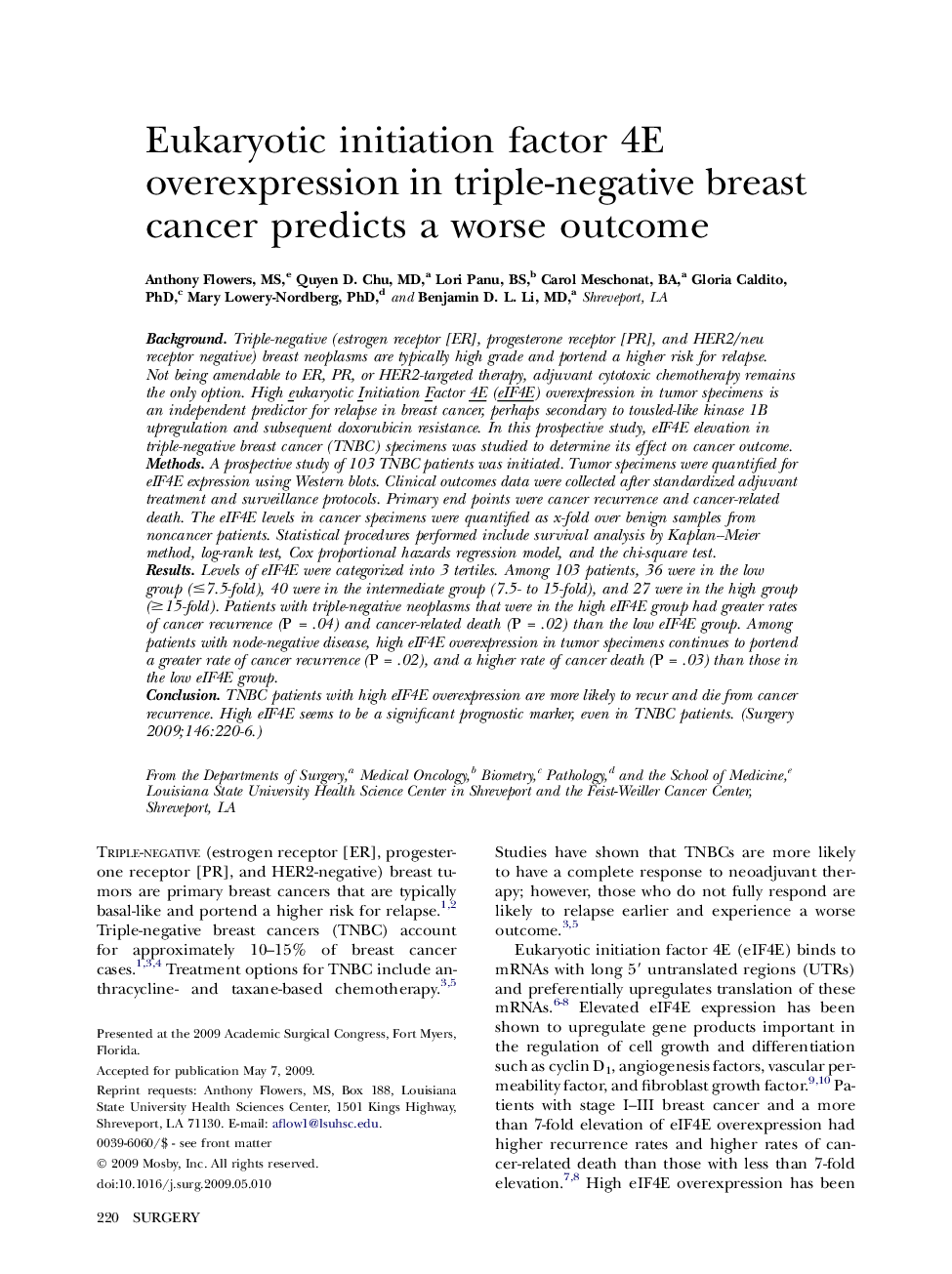| کد مقاله | کد نشریه | سال انتشار | مقاله انگلیسی | نسخه تمام متن |
|---|---|---|---|---|
| 4309385 | 1289310 | 2009 | 7 صفحه PDF | دانلود رایگان |

BackgroundTriple-negative (estrogen receptor [ER], progesterone receptor [PR], and HER2/neu receptor negative) breast neoplasms are typically high grade and portend a higher risk for relapse. Not being amendable to ER, PR, or HER2-targeted therapy, adjuvant cytotoxic chemotherapy remains the only option. High eukaryotic Initiation Factor 4E (eIF4E) overexpression in tumor specimens is an independent predictor for relapse in breast cancer, perhaps secondary to tousled-like kinase 1B upregulation and subsequent doxorubicin resistance. In this prospective study, eIF4E elevation in triple-negative breast cancer (TNBC) specimens was studied to determine its effect on cancer outcome.MethodsA prospective study of 103 TNBC patients was initiated. Tumor specimens were quantified for eIF4E expression using Western blots. Clinical outcomes data were collected after standardized adjuvant treatment and surveillance protocols. Primary end points were cancer recurrence and cancer-related death. The eIF4E levels in cancer specimens were quantified as x-fold over benign samples from noncancer patients. Statistical procedures performed include survival analysis by Kaplan–Meier method, log-rank test, Cox proportional hazards regression model, and the chi-square test.ResultsLevels of eIF4E were categorized into 3 tertiles. Among 103 patients, 36 were in the low group (≤7.5-fold), 40 were in the intermediate group (7.5- to 15-fold), and 27 were in the high group (≥15-fold). Patients with triple-negative neoplasms that were in the high eIF4E group had greater rates of cancer recurrence (P = .04) and cancer-related death (P = .02) than the low eIF4E group. Among patients with node-negative disease, high eIF4E overexpression in tumor specimens continues to portend a greater rate of cancer recurrence (P = .02), and a higher rate of cancer death (P = .03) than those in the low eIF4E group.ConclusionTNBC patients with high eIF4E overexpression are more likely to recur and die from cancer recurrence. High eIF4E seems to be a significant prognostic marker, even in TNBC patients.
Journal: Surgery - Volume 146, Issue 2, August 2009, Pages 220–226